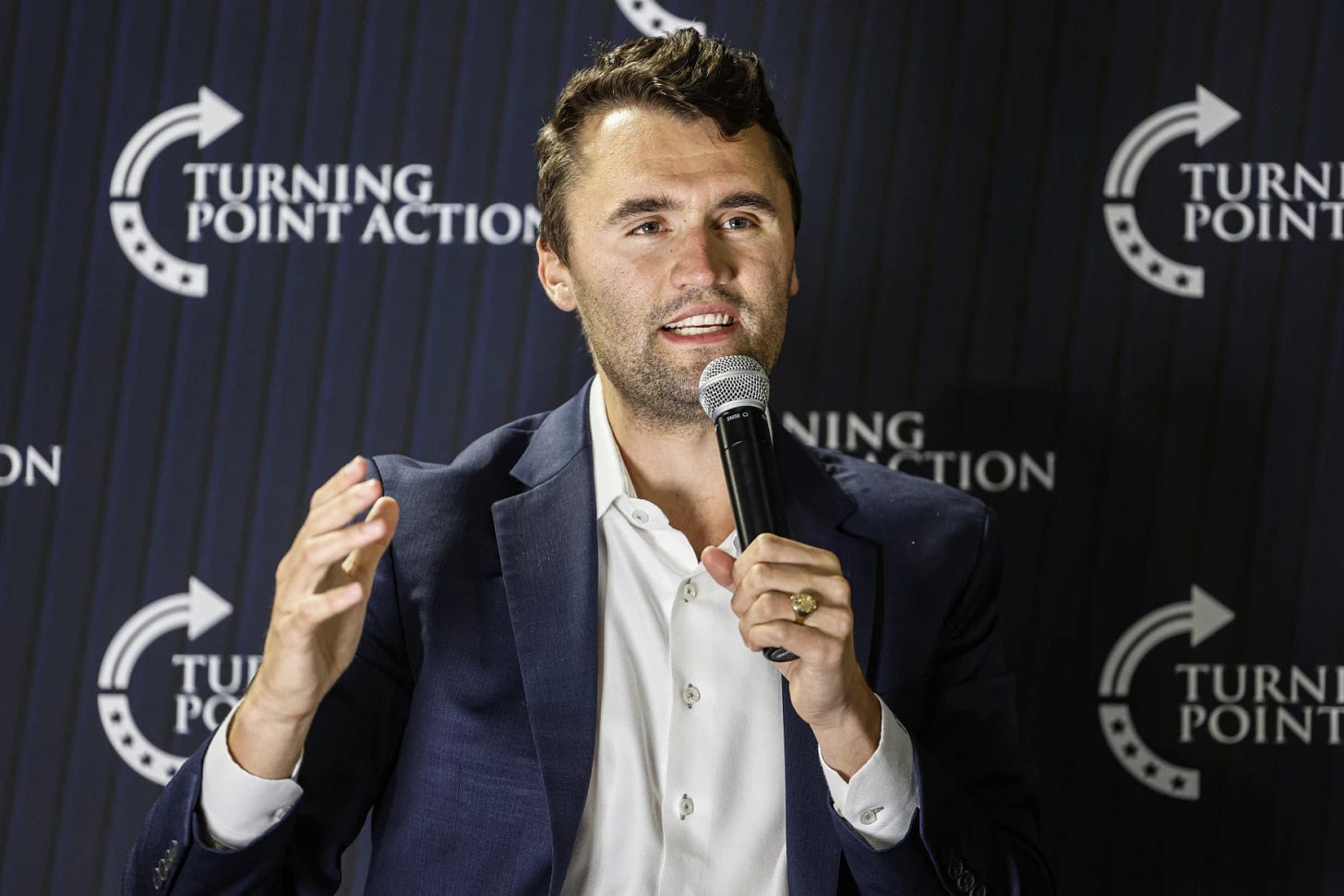The Last Provocation: Charlie Kirk's Final Performance
Will Anyone Survive the Death Of Charlie Kirk?
How the conservative firebrand who turned political discourse into blood sport met his end under a tent marked "Prove Me Wrong.“
There was something almost theatrical about the way Charlie Kirk met his end—shot dead at 31 while sitting beneath a tent emblazoned with his signature challenge, "Prove Me Wrong," debating a young liberal about transgender mass shooters before 3,000 people at Utah Valley University. The conservative activist was in his element, livestreaming his latest confrontation when a single gunshot cracked through the September afternoon, sending him clutching his neck before collapsing from his chair as attendees fled in terror.
It was, in its grim way, the perfect finale for a man who had built his fortune and following by turning American political discourse into gladiatorial combat, complete with viral clips and manufactured outrage. Kirk understood better than most that in our fractured democracy, provocation pays—and he was willing to be the villain if it meant st…



